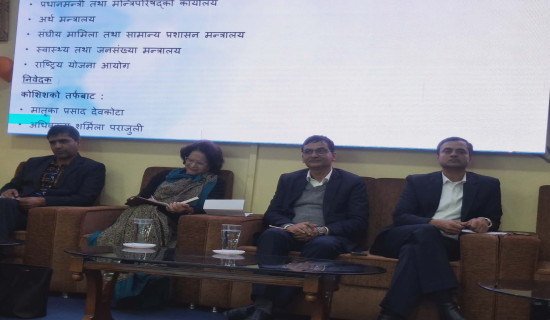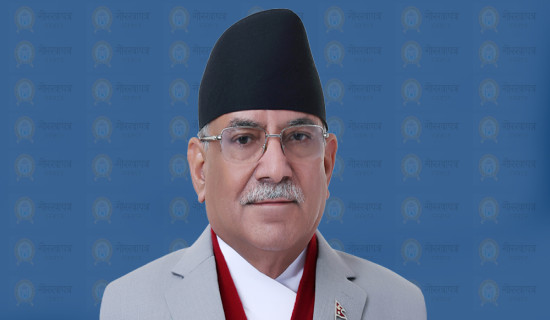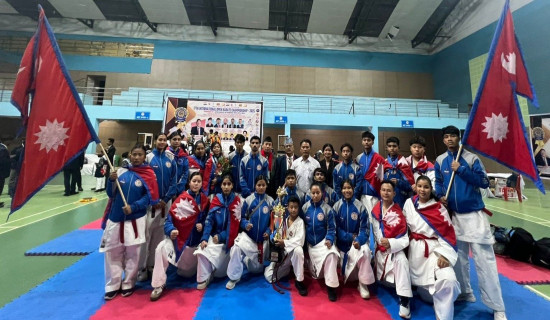- Wednesday, 31 December 2025
US, China Test Cold Waters
Superpowers engage in testing the pulse of each other. Sino-American relationship is not exactly on an even keel, though the cool vibes began surfacing in the 2010s. Big powers cannot afford to ignore one other; some kind of communication becomes essential. This is what the meeting last week between the US President Joe Biden and his Chinese counterpart Xi Jinping on the sidelines of the Asia-Pacific Economic Cooperation (APEC) conference in San Francisco reiterated.
The first move for the top-level meeting apparently came from Washington. Beijing would not risk taking an initiative first for fear of giving the rival superpower the satisfaction of rejecting it with “we will see what can be done with it”, only to leak the same to a select press quoting the deep background “sources in high places”. The encounter was attributed to keeping the bilateral lines of communication open. Given their rivalries over policies and push for expanding trade and global influence, neither side wanted to give the impression that the other was softening its position.
The agenda and other preparations for the meeting were discussed in October between Chinese Foreign Minister Wang Yi and the US Secretary of State Antony Blinken as well as the host country’s National Security Advisor Jake Sullivan. The interactions were “candid and in-depth”. Both the militarily and economically most powerful forces would be keen to maintain diplomatically correct postures for public consumption. For the road ahead is fraught with inherent challenges at a time when tectonic shift in the traditional world order is widely acknowledged to be in the making. Washington’s first move to invite Chinese bigwigs for resuming talks responds to Beijing’s official news outlet Global Times’ consistent call for Washington to reconsider its obstinate position and do normal business with Beijing.
Preparations
In the last week of October, Wang told Biden the visit would help “stem the decline” in Sino-US ties and resume “in-depth and comprehensive” dialogue. Reuters news agency had reported that Wang’s Washington visit was part of recent bilateral diplomatic engagements, “largely at US request, aimed at salvaging what were rapidly deteriorating ties early in the year following the US downing of an alleged Chinese spy balloon”. Summit level talks preceded intense preparations, including which agendas to push forth and what to postpone for unspecified future. Issues related to Taiwan, human rights and South China Sea, among others, are invoked by Washington as an attempt at appeasing and reassuring its non-Western allies while denigrating the marked opponent.
In San Francisco, Biden raised the issues only as a passing mention, which was for the sake of formality and the world outside. At some later stage, there might be background briefings or deep briefings to trusted sections of the media but with overstretched interpretations of what was actually brought about between the two sides. The effort would be aimed at presenting Biden as a tough leader. Those in the know about how things operate in diplomacy and public postures of political leaders easily sense to what extent might discussions have transpired regarding the topics that either side did not want pursued. In fact, the agenda-setting exercises during Wang-Blinken meetings and with other senior hosts had laid down the core issues for top level discussion. Meticulous care is given to the scope of agenda outlines.
Even as China’s Xinhua news agency blamed the US for problems in Beijing-Washington ties, Biden and Xi engaged in a working lunch. The visiting guest’s core concerns pertained to Taiwan and the US sanctions whereas his host stressed on resumption of communication for addressing issues involving bilateral ties and the rest of the world. At the end of the day, the two sides reached a number of agreements, including those on curbing production of illicit fentanyl and resuming high-level military-to-military communications. Of considerable interest to the world at large were issues like trade, investments, supply chains, protectionism and spheres of influence but not much seems to have come out from the engagement. These might be addressed in future.
Pragmatism pays
According to the capitalist world’s mainstream media, the West has only news of the “mess” piling up for rival superpowers — China and Russia. Its media reports conclude that Communist China’s economy is no longer as robust as it used to be; and its youth are growing restless with fewer well-paid and little attractive employment opportunities. The Wall Street Journal declared: “China’s economy is slumping.” Amidst worldwide belief that China and Russia combine as superpower twins in serving mutual interests, the big news outlets in the West taunted Moscow with comments like China treats Russia as if it were a vassal state.
Negative propaganda tactics having missed their mark miserably, Washington’s bigwigs opted for some pragmatic approach. Motivated sanctions against China have hurt the communist country no doubt. But the move has begun to pinch and punch the American economy, too. Decades of free trade policies enunciated by the economically advanced West have entwined dependency on foreign markets. Lofty and so-far fruitful policies cannot guarantee the super-rich having their sway permanently. Honest commitments require to be honoured in consistent practice.
Things are bound to change; that’s the law of the times. And so have developments occurred, with some powers declining and others registering higher stature. Ability to learn from the past with foresight to promptly pursue pragmatic and all-embracing measures prevents nations from stemming steep downslide. Failure to do so rings the risk of a boomerang striking dangerously hard. Big powers need to think big. Today’s world is no longer prepared to suffer the hegemons that some forces managed earlier. The message is that the lives and comforts of all people in all countries must matter.
As for the latest superpower summit, even if on the sidelines of the APEC meet, China’s news agency Xinhua’s suggested: “We hope the positive attitudes as shown by the US in recent interactions are not political calculations and tactical opportunism.” Caution over the Xi-Biden meet’s effective outcome cannot be dismissed considering that the 81-year-old US president is seeking a fresh four-year term at the White House in November next year. After all, shortly after the meeting with the Chinese leader, Biden described him as a “dictator”.
(Professor Kharel specialises in political communication.)









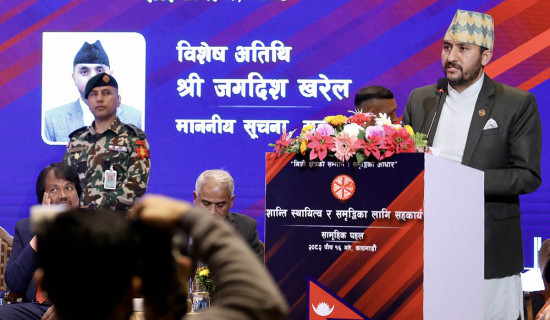
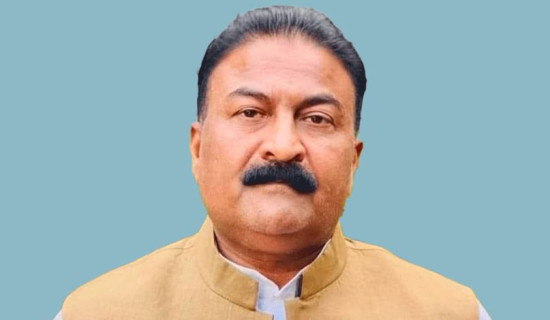
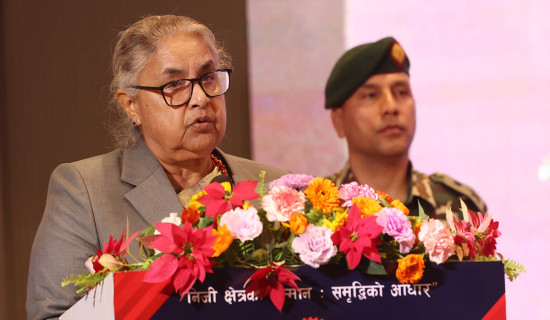

-original-thumb.jpg)
